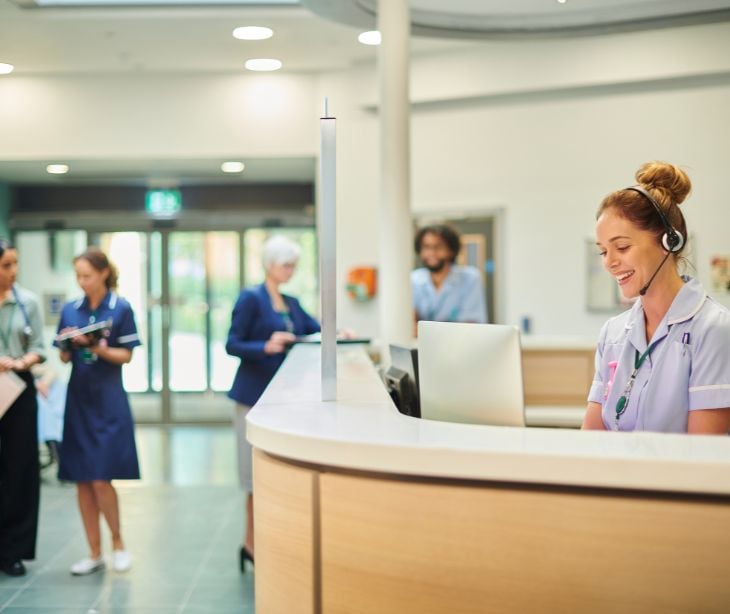
Nurses' stations must be HIPAA compliant to protect sensitive patient health information. This involves ensuring visual and auditory privacy, secure data transmission, and restricting access to authorized personnel. Non-compliance can result in significant fines and legal repercussions.
Possible nurses' station HIPAA violations
- Patient records: Nurses' stations often have access to electronic health records (EHRs) and other patient information. This data must be safeguarded against unauthorized access.
- Visual privacy: Computers and paperwork containing patient information should be positioned so that they cannot be easily viewed by passersby. This might mean using privacy screens or ensuring monitors are angled away from public view.
- Auditory privacy: Conversations regarding patient care should be conducted in a manner that prevents eavesdropping. This can be a challenge in the open setting of many nurses' stations, so staff need to be trained on how to discuss sensitive information discreetly.
- Access control: Only authorized personnel should have access to patient information. This might mean using password-protected computer systems, ID badge readers, or locked file cabinets.
- Data transmission: Any transmission of patient data, whether it's electronic or paper, must be done securely. For electronic data, this might mean using encrypted email or secure file transfer methods.
- Training: All staff, including those working at nurses' stations, should be trained on HIPAA regulations and how they apply to their specific roles.
- Physical security: The physical security of the nurses' station is also crucial. This might involve having security cameras, ensuring that the area is well-lit, and having protocols for identifying and managing unauthorized individuals.
See also: Illinois Supreme Court deliberates on nurses' biometric privacy
Best practices to implement HIPAA compliant nurses' stations
Screen protectors
Installing screen protectors on computer monitors restricts the viewing angle, ensuring that patient information displayed on screens is visible only to authorized healthcare professionals directly in front of them. This prevents unauthorized access or viewing, safeguarding patient data from prying eyes.
Visitor sign-in logs
The facility can effectively track who has accessed the area by requiring visitors to provide reasons for their visit and their relationship to the patient.
Privacy screens
Creating physical barriers or privacy screens around workstations in nurses' stations is a practical measure to prevent unauthorized individuals from inadvertently viewing computer screens or overhearing sensitive conversations.
Use HIPAA compliant communication methods
Secure communication channels such as HIPAA compliant email in nurses' stations facilitate the efficient exchange of patient-related information while protecting against unauthorized access or disclosures.
Screen timeout
Configuring computer workstations to have a short screen timeout setting is necessary to automatically lock screens when not in use.
Positioning nurses' whiteboards carefully
Placing whiteboards strategically positioned locations within the nurses' station is vital. This practice helps ensure that sensitive patient information displayed on whiteboards is not within the line of sight of visitors or passersby. It prevents accidental viewing of patient data and maintains patient privacy.
Subscribe to Paubox Weekly
Every Friday we bring you the most important news from Paubox. Our aim is to make you smarter, faster.




